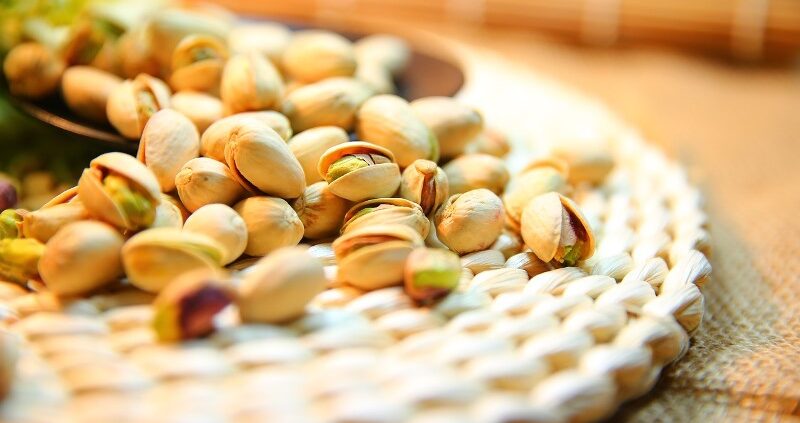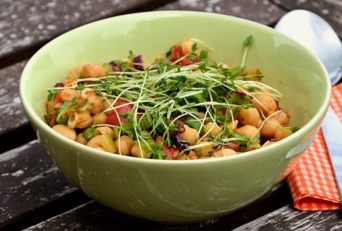The benefits and harms of pistachios: what do you know about them?! Nutritionists report that pistachios are very healthy, especially when it comes to the heart, intestines, and waist. But be careful! Because of their oily, rich taste, it is easy to eat a lot of them and this is no longer good.
Let’s talk about all the pros and cons of this favorite product. Pistachios are a great snack for our drink. Especially, when we have a tough game with the online slots casino. Beer, pistachios, and gambling, what can be better?
Historical Notes
Pistachios are a “drupe”, a fleshy fruit of a tree containing a seed covered with a shell. With pistachios, we give up the pulp of the fruit for the delicious seeds inside. The pistachio harvest season runs from late July to early September. A close relative of the pistachio is the sweet mango.
It is believed that the pistachio tree first appeared in Western Asia, on the territory of modern Iran and Iraq. According to archaeologists, pistachios have been eaten for over 2,500 years. The most daring scientists claim that already in the 7th century.
BC, when people began to move from gathering to farming, a cow was domesticated and food began to be served in earthenware, pistachios were already eaten.
Pistachios are mentioned in the Old Testament. In Persia, trading pistachios and owning pistachio groves signified wealth and high status. Legend has it that pistachios were the favorite food of the Queen of Sheba, who took over the entire nut croOnce considered a “warming food” and consumed during the cold winter months, pistachios are now eaten all year round.
The boom in commercial production of pistachios began in the 1970s. Iran, Turkey, the USA, China, Syria, Greece, Spain, and Italy are the top countries supplying pistachios around the world.
Pistachios Benefits
Pistachios are a clear example of the fact that “valuables are stored in small packages.” Although this little nut may not seem like much, pistachios are full of beneficial plant-based substances that can do a lot for our health.
Although pistachios themselves do not contain very much iron, they are high in copper, which improves the body’s ability to absorb iron from food. This can help prevent the development of anemia.
Pistachios are rich in potassium. 60 g of pistachios contain more potassium than a large banana and as much fiber as 100 g of boiled broccoli.
Many nutritionists believe that you can eat no more than 30 g of pistachios per day. Buying in-shell pistachios slows down the process of eating them quickly. And a slide of peeled shells will clearly demonstrate how many pistachios you have already eaten!
Pistachios are one of the lowest-calorie nuts, which means that a person can enjoy their benefits while sticking to their daily calorie allowance. For example, 30 grams of macadamia nuts provide 204 calories, 30 grams of pecans provide 196 calories, and 30 grams of pistachios provide only 159 calories.
100 g of raw pistachios provide 22% of the daily protein requirement. And the protein itself is 15% of the BJU of the product. Pistachios boast a higher ratio of essential amino acids than other nuts, including almonds, hazelnuts, pecans, and walnuts.
Since pistachios are relatively low in calories but high in fiber and protein, they can be beneficial for people who control their weight. A 2020 study found that a daily 40g serving of pistachios helped reduce body mass index and waist circumference in obese men and women compared to a control group who did not eat an extra serving of pistachios each day.
Pistachios release energy slowly, making them the perfect pre-workout snack. The protein they contain also helps muscles recover from sports. Antioxidants reduce the risk of cancer and other diseases by preventing damage to body cells.
Nuts and seeds typically contain several antioxidant compounds, but pistachios have higher levels of some antioxidants than other nuts. These are tocopherols, phytonutrients, and polyphenols.
Benefits For The Ticker
Pistachios help lower blood pressure and “bad” cholesterol levels, reducing the risk of cardiovascular disease. The fact that they are rich in antioxidants also benefits heart health.
Several studies have shown that eating pistachios help to significantly lower blood pressure in people with type 2 diabetes. Pistachios had the most significant effect on lowering systolic and diastolic blood pressure of any nut tested.
Gut Health Benefits
All nuts are rich in fiber, which supports a healthy digestive system. Studies have shown that eating pistachios and, to a lesser extent, almonds increases the level of prebiotics, which stimulate the reproduction of beneficial microflora and prolong their lifespan.
Controlling Blood Sugar Balance
Pistachios have a low glycemic index, so they don’t cause a spike in blood sugar after a meal. In addition, they are rich in antioxidants, carotenoids, and phenolic compounds that control blood sugar levels.
Research supports the suggestion that eating pistachios may help reduce the risks associated with diabetes. For example, in 2017, scientists found that a Mediterranean diet rich in olive oil and pistachios reduced rates of gestational diabetes (diabetes in pregnancy).
Eye Health Benefits
Pistachios are a rich source of the antioxidants lutein and zeaxanthin (natural pigments) that are essential for eye health. Pigments reduce the likelihood of developing chronic eye diseases such as cataracts and age-related macular degeneration. These two diseases are the leading causes of blindness in developed countries.
Natural pigments also perfectly protect the eyes from the harmful effects of blue light, which emits the screen of any gadget. In general, lutein and zeaxanthin are best absorbed when combined with fat at meals. However, pistachios already contain healthy fats, which means that the body absorbs them perfectly – without additional help.
Skin health and beauty benefits
While the concentration of unsaturated fatty acids makes pistachios beneficial for health, saturated fatty acids also contribute to the health of the body. They protect the skin from drying out. Pistachios are one of the most recommended foods for people suffering from atopic dermatitis and eczema. In addition, pistachio oil extract is widely used as a base in traditional massage treatments, as well as in aromatherapy.
Pistachio Can Harm As Well
Pistachios are a source of fiber, which means that they help relieve constipation. However, people with a nut intolerance or allergy may experience digestive problems such as diarrhea, gas, bloating, or stomach cramps.
If you suspect you have a nut intolerance, be sure to talk to your doctor before including pistachios in your diet for health benefits.
Although raw pistachios do not have much sodium. Usually, 1 cup contains about 1 mg of the substance, this is not the case with roasted salted pistachios.
A glass of roasted pistachios with salt contains 526 mg of sodium. An excess of this alkali metal can lead to high blood pressure, heart disease, and stroke.
Final Advice
Almost all pistachios are sold in bags, where a transparent window often takes up minimal space. Therefore, it is quite difficult to accurately determine the quality of the product. We offer a simple but powerful way to understand how much salt, debris, and husks are in pistachios. To do this, it is enough to place the bag horizontally, shake it well and lift it above your head. If there is a lot of salt, you will immediately see it in the window. If the packaging says that the pistachios are “salted”. In this case, the salt is only a shade that should not clog the natural taste of the product. If there is a lot of salt at the bottom, they will have to be soaked in water beforehand.






